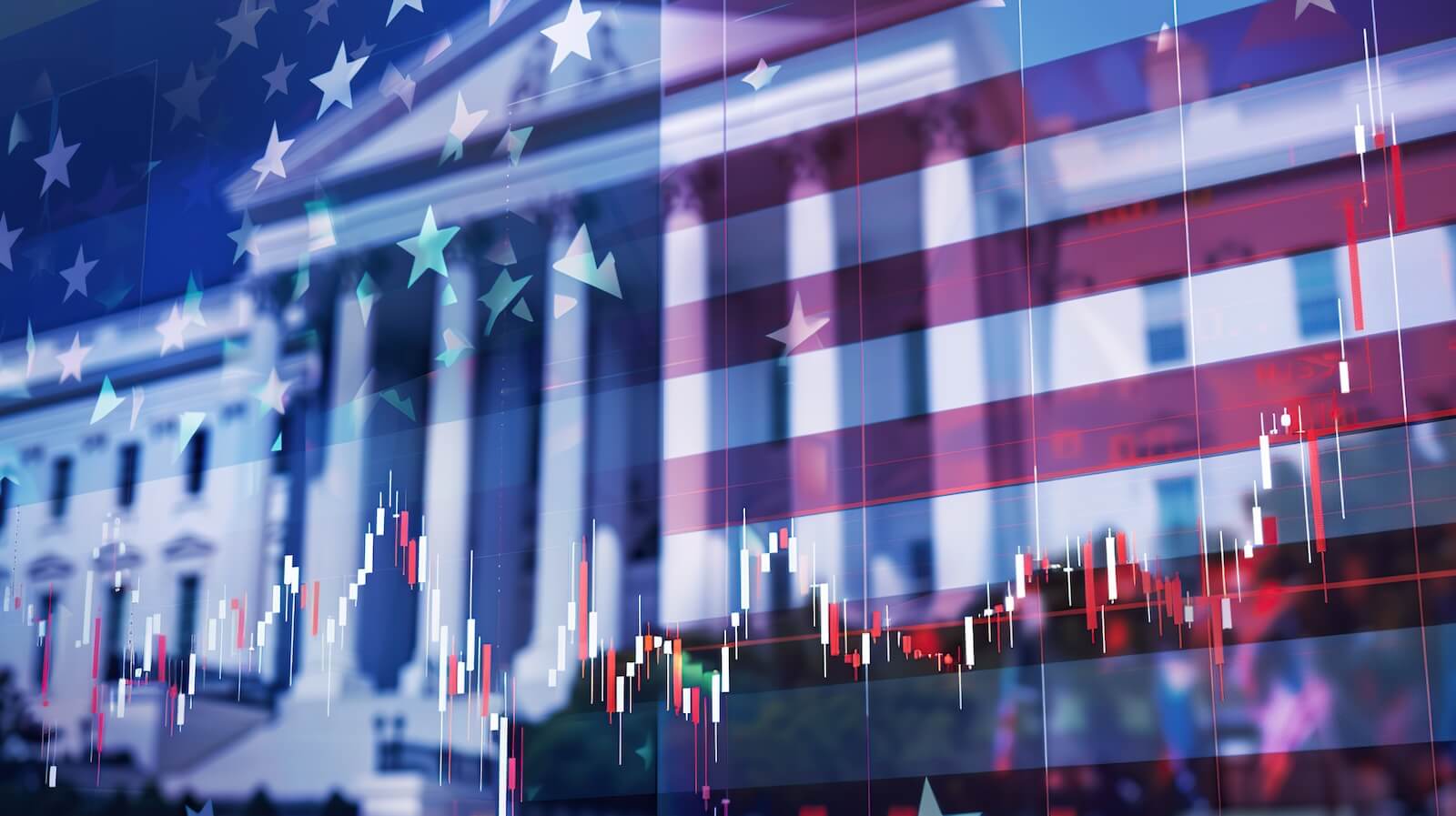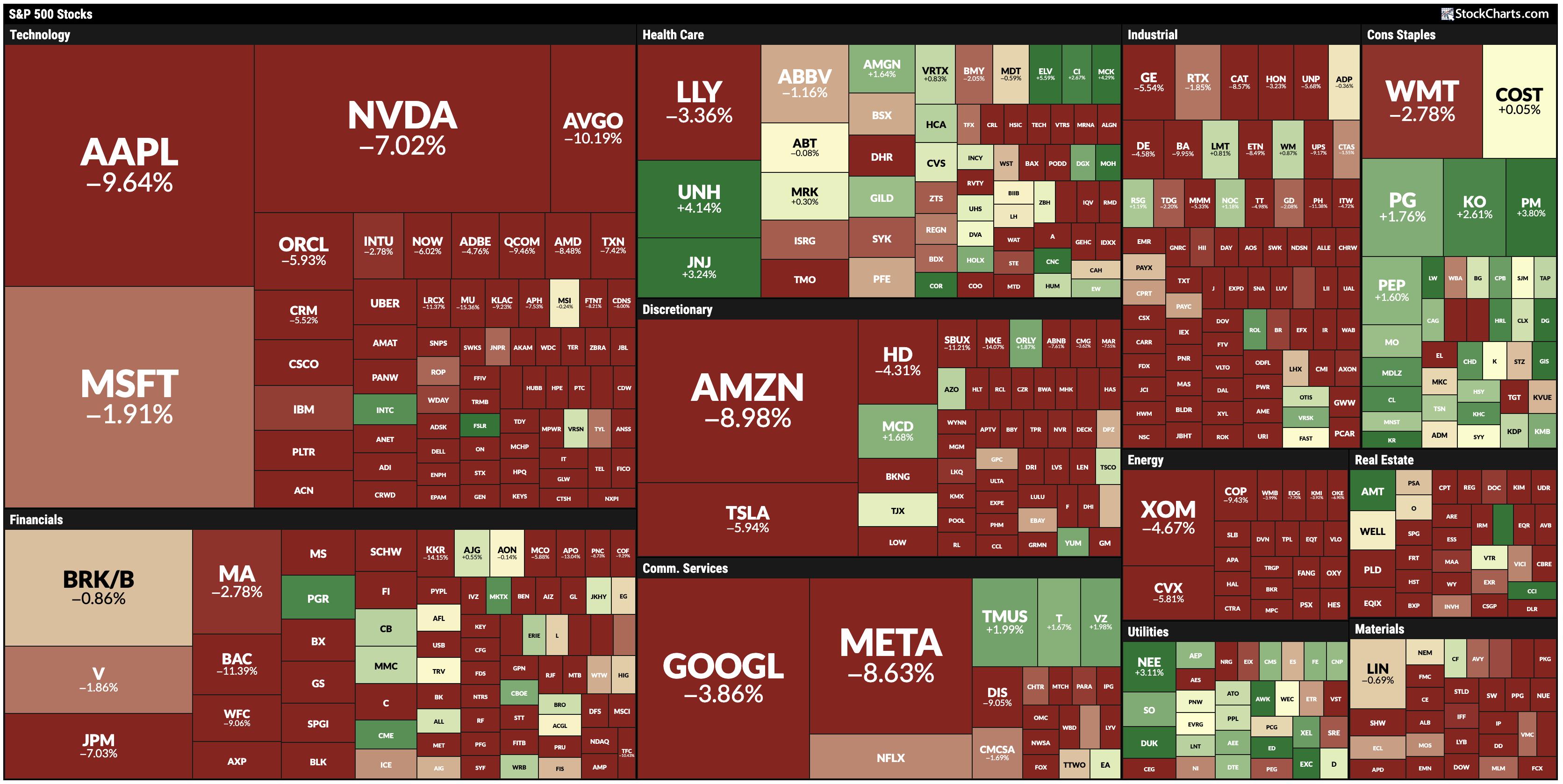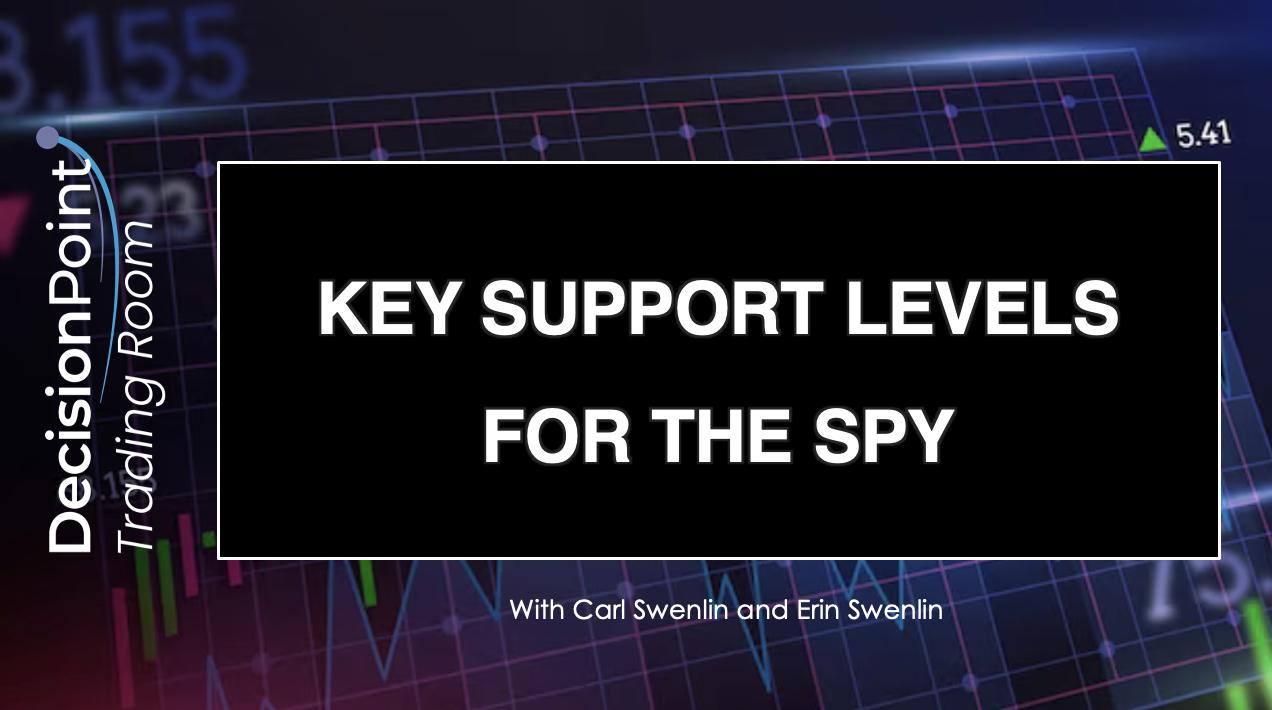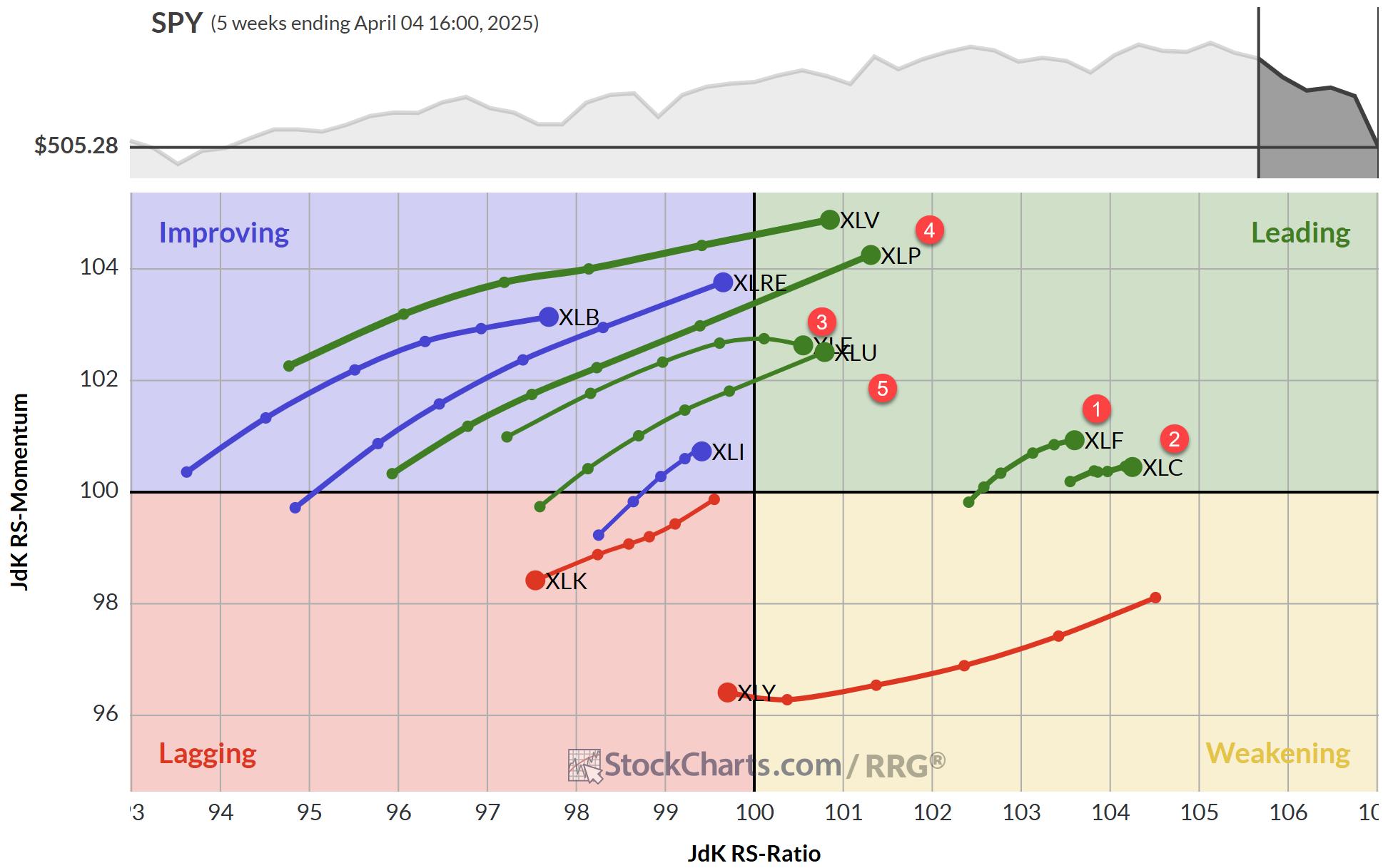The following was a special educational Daily Market Report that I sent to our EB.com members last week....
I always refer to EarningsBeats.com as a "Research, Guidance, and Education Platform", because that's truly what we strive to be. HERE IS WHAT WE ARE NOT - REGISTERED INVESTMENT ADVISORS. I'd love to try to help everyone on an individual basis, but it's virtually impossible. There isn't enough time in the day for me to work with our members on a 1-on-1 basis and the even-bigger issue is that I'm not licensed to do so. It's vital to understand each individual's risk profile and tolerance before considering/implementing any type of investment or trading plan. Therefore, we're limited at EarningsBeats.com to providing each of you information in the form of market research, guidance, and education, and then what you do with it is completely up to you. I've learned a lot about the stock market over the years and my passion is teaching others what I've learned. I give plenty of credit to John Murphy, whose books taught me so much and inspired me to do the research that I've done over the years. Perhaps the biggest lesson I've learned is that we have all the information we need in the price action on the charts. We don't need an MBA in Finance. I honestly don't need my CPA license. The big Wall Street firms do all the heavy lifting and they essentially provide us personal reports based on the price action. We simply need to know how to use it.
In this special report, I want to focus on leveraged ETFs, providing you key information to help you better trade these products.
I've been requested on many occasions to keep everyone posted on my use of leveraged ETF products, specifically relating to the timing of purchase and sale. I don't mind discussing this when I believe it's appropriate to do so, but let me also say that I cannot be held responsible for anyone's personal decision to use these leveraged products. That's completely up to you. I discuss it to help further educate the use of such products. I am NOT recommending or advising any of our members to buy or sell ANY INVESTMENT PRODUCTS - EVER. I don't even like to use the words "recommending" or "advising", because I believe that's best left to those who manage money or are registered investment advisors.
So now that all of that is out of the way, let me discuss how leveraged ETFs are designed to work. First of all, there are two very important elements of leveraged products that you MUST be aware of:
- They are designed to track at a 2x or 3x rate on a daily basis, not long-term
- Holding leveraged ETFs for extended periods of time (especially during volatile periods) can and usually does result in "erosion" (meaning that your returns will be worse than promised - 2x or 3x)
I want to give you two examples - the first will be a long-term example, explaining why holding leveraged ETFs for the long-term makes little sense. The second will be a short-term example that hopefully highlights the PERFECT way to use leveraged ETFs.
Example 1 - Holding Long-Term
I called an S&P 500 bottom in June 2022. If you had timed your entry into the NASDAQ at the close on June 16, 2022, that would have represented darn-near perfect timing (a slightly-lower bottom printed in October, just below the June low):
As of the March 27th close, the QQQ had risen 14.64% from the June 16, 2022 close. That's awesome, but what if you had been aggressive and decided to purchase the QLD or, even better yet, the TQQQ. These leveraged ETFs track the QQQ at a 2x and 3x rate, respectively. You'd have made a KILLING, right? After all, that 14.64% return would balloon to 29.29% and 43.93% on the QLD and TQQQ, respectively - at least in theory. But how did the QLD and TQQQ actually perform? Here's how.....
- QLD: +18.37% (should have been +29.29% in theory)
- TQQQ: +16.98% (should have been +43.93% in theory)
During a period in which the QQQ gained more than 14%, the 3x leveraged ETF (TQQQ) barely outperformed the QQQ and it UNDERPERFORMED the 2x leveraged ETF (QLD)! In the end, you took on inordinate amount of risk and your results simply didn't justify taking that risk. If you want to see it on the chart, check this out using a 194-day rate of change (ROC):

There were 194 trading days from June 16, 2022 through yesterday, March 27, 2023. Now, to prove the numbers that I gave you above on the QLD and TQQQ, here are those two charts using the same 194-day ROC:
QLD (2x leveraged ETF):

TQQQ (3x leveraged ETF):

Let me ask you a question. Do you feel differently about those leveraged ETFs now after reading this? I've been trying to educate folks that it makes no sense financially to take on the risk of leveraged ETFs and hold on for the long-term. However, not all is lost. The time when these ETFs do what they're supposed to do.....and then some.....is when the market is trending.
Example 2: Trading Short-Term
Timing is EVERYTHING with leveraged ETFs. Think about the best times to buy the QQQ. I'd say either on a major breakout or when it pulls back to key price or moving average support. The QQQ is currently in a cup and pulling back within a handle:

If you're bullish, the pullback into a potential handle and the rising 20-day EMA provides an excellent opportunity to take a shot with leverage. My strategy is to use this short-term weakness to build a reasonably-sized leverage position. If the QQQ were to trade down below the 300 level, I'd likely take a fairly small loss on my leveraged position and move back entirely to the QQQ. If you're bullish and decide to use leverage, the decision whether to buy the QLD (2x) or TQQQ (3x) simply comes down to how much additional risk you're willing to assume.
Let me show you what happens when you catch an uptrend and you use leverage, because that's when leveraged products work really well. Back on Thursday, January 5th, I sent out a DMR (Special Report), highlighting that I was seeing positive correlation between the VIX and S&P 500 and that usually means a market reversal. The S&P 500 had been downtrending and I suggested that we could see a big rally out of nowhere and that I was using the opportunity to build a leveraged ETF position. If you bought the leveraged QLD or TQQQ at the close on January 5th and held through the entire uptrend that ended on February 2nd (19 trading days, so the charts below will show a 19-day ROC), you'd have done very well. How did the QQQ perform and how did those leveraged ETFs perform?
QQQ:

QLD:

TQQQ:

In this example, the QQQ and the leveraged products gained the percentages shown below for the 19-day holding period:
- QQQ: +19.17%
- QLD (2x): +40.57% (should have been +38.34% in theory)
- TQQQ (3x): +64.49% (should have been +57.51% in theory)
Not only did the leveraged products achieve their desired 2x and 3x returns, but they also exceeded them! You'd have made MORE than what was expected. While erosion is a problem over the long-term, because of volatility (ups and downs), compounding actually provides BETTER RETURNS when the trend is primarily in one direction.
If you're going to use leveraged products, you want to invest in them and hold while the trend is in play, then EXIT STAGE LEFT! Holding these products long-term can produce returns that are much worse than what you expect. They're not worth the risk of holding long-term.
Current Environment
I like shifting a portion of my QQQ investment to either the QLD or TQQQ now, because of the following:
- Bullish cup with handle continuation pattern
- Historical tendency (April is very bullish and the first half of calendar quarters - April 1 to May 15 - typically perform well)
- Despite the weakness since mid-February, the VIX currently resides just above 20; fear is eroding
- I can limit my risk as the QQQ is trading relatively close to its rising 20-day EMA
NONE of this guarantees us a higher market ahead. Trading success stems from patience, education, and managing risk. I believe the QQQ is a solid buy as it falls and approaches its rising 20-day EMA, which is currently just beneath 303. I've begun using leverage and will continue to do so down to the 20-day EMA. I will hold it unless the QQQ closes beneath 300. This is a prudent use of leverage, in my opinion. Many of you that are risk averse probably should simply stick with ETFs like the SPY or QQQ and avoid using leverage. But those of you that want to take on more risk for the potential of higher reward may find the use of leveraged products a major benefit - just pick your spots judiciously. I don't believe in the philosophy of buying leverage and holding it long-term. The ultimate reward is not worth the additional risk, in my opinion.
UPDATE:
After this email to EB.com members, the QQQ spiked 3.94% over the next four trading days. On the chart below, I show the 4-day ROC on the QQQ, QLD, and TQQQ. You can see that leveraged products work GREAT while trending higher:

My suggestion: Please be careful when using these leveraged ETF products. They most definitely can help a portfolio achieve more aggressive positive results when a trend is in place, but periods of volatility and consolidation will result in considerable erosion.
Pre-Announcement: Big Event on Saturday, April 15th
We are going to open up registration this week for a HUGE event on Saturday, April 15th. It'll be FREE to everyone and I'll be:
- discussing the current technical state of the stock market
- providing an update on sentiment and market manipulation
- reviewing key historical and seasonal tendencies
- and much, much more!
Seating will be limited, so if you'd like to ensure your spot, sign up for our FREE EB Digest newsletter (we'll send out invites to all EB Digest subscribers). Simply CLICK HERE and enter your name and email address. I'll see you on the 15th!
Happy trading!
Tom






